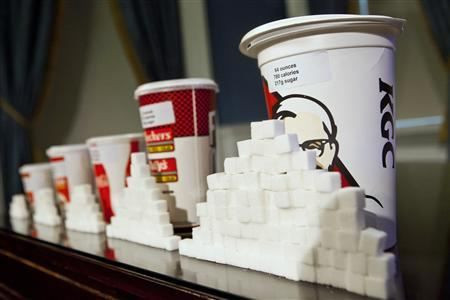Appeals Court Begins Consideration Of Bloomberg’s Blocked NY Soda Ban On Tuesday

The ban on large sugary drinks that got shot down three months ago bubbles up once more as lawyers from New York Mayor Michael Bloomberg's administration appear before an appellate court Tuesday.
The terms of the ban remain the same. All establishments that fall within the codes of the city's health department cannot sell sugary beverages larger than 16-ounces. Such establishments include restaurants, movie theatres, and other food-service establishments. Places that do not receive a health inspection do not fall within the terms of the ban.
For this reason, the day before the ban was to take effect, State Supreme Court Justice Milton Tingling invalidated the rule, claiming the administration had arbitrarily defined where the drinks could and could not be sold. He also challenged the validity of the law itself, as it had passed in September of 2012 without legislative approval.
"After Tuesday's arguments before a panel of judges at the state Supreme Court's Appellate Division," Reuters reports, "it could take months for the court to issue a ruling."
Due to this extended timeline, it remains unclear whether Bloomberg's successor at the end of the year will continue the Mayor's efforts with the ban.
"It was never about obesity; it was never about soda," said Matthew Greller, who represents the plaintiff National Association of Theatre Owners of New York, back in April. "The question, fundamentally, is: What is the power of a city agency?"
A spokesman for the American Beverage Association, Chris Grindlesperger, echoed Greller's sentiments, praising Justice Tingling's invalidation of the ban.
"While we commend the city for its commitment to health and wellness, the ban would have arbitrarily and disproportionately penalized small businesses."
The city's health board has taken measures in the past that have stood the test of time, such as adding fluoride to the city's water supply and requiring chain restaurants to post calorie counts in their establishments.



























